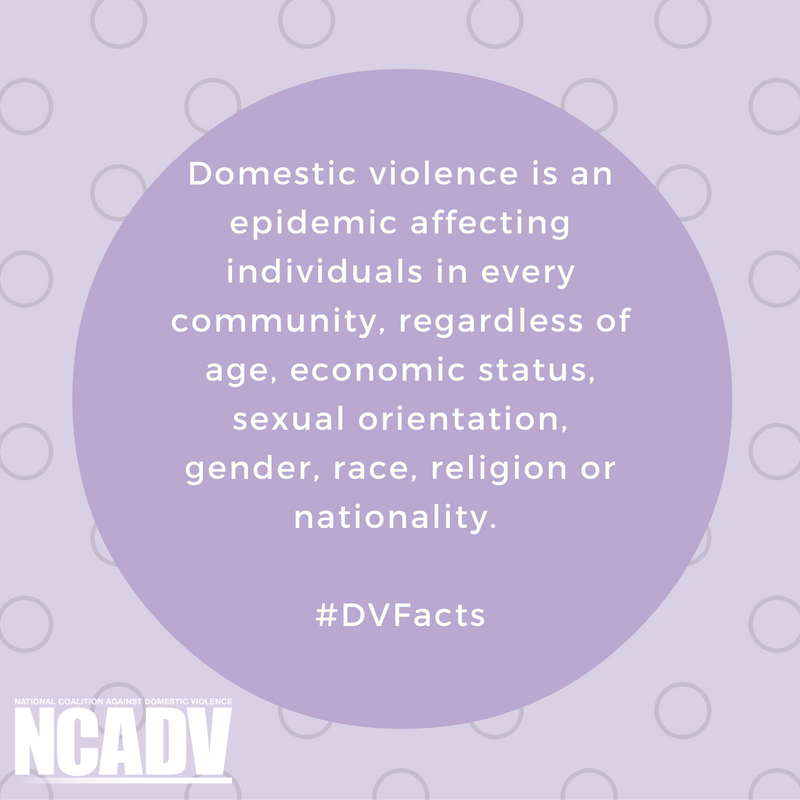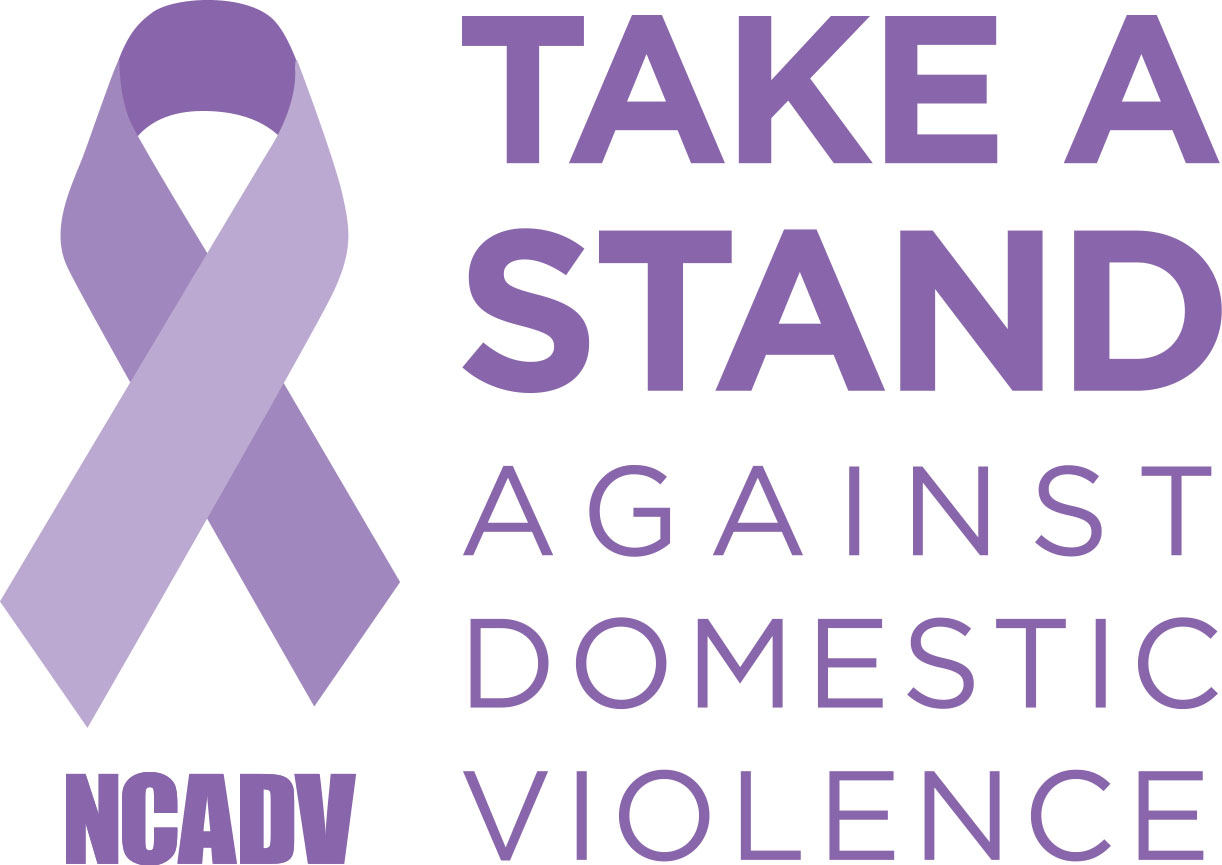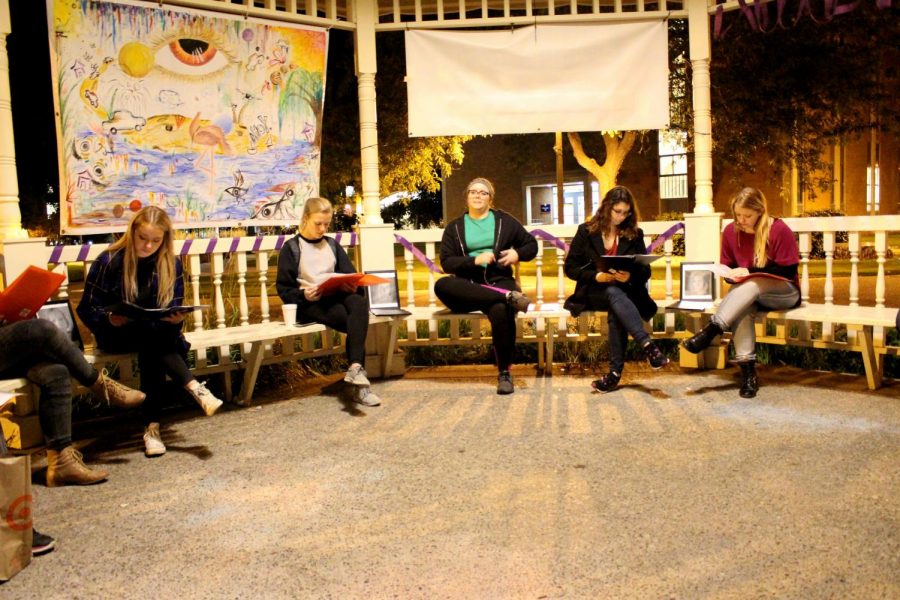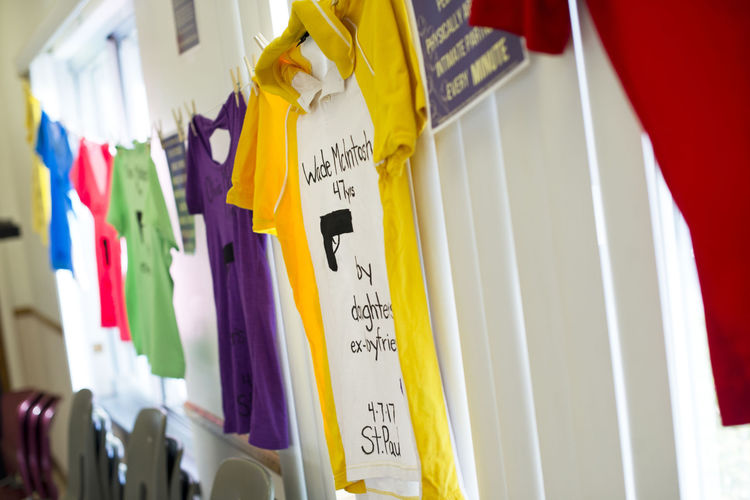October was National Domestic Violence Awareness Month, a tradition that has happened every year since 1987 (making this the 30th year!). This month creates conversation about domestic abuse, helping us to realize that its prevalence in our society is more common than we would like to believe.
Let’s talk about domestic violence:
As a community, domestic violence needs to be talked about. We should talk about the issue, make sure we all know our resources, and support and believe survivors. Domestic violence does not discriminate, it affects women, men, queer people, straight people, and everyone else.
Abuse is a cycle. The physical, sexual or emotional abuse will happen, then the abuser may apologize, promise it won’t happen again, or deny the abuse even happened. The abuser may also act like the abuse never happened, the abuser may “make up” after the abuse. The victim may feel their abuser won’t do it again and the abuse is over. This cycle is used to control the victim, and keep them in the cycle of abuse.
If the victim is ready to leave or does not leave, there is a common myth that they “should just leave their partner.” Leaving can be dangerous. Abusers are more likely to kill their victims in the two weeks after they leave than any other time in the relationship. But there are also factors such as economic issues, having children together, and other reasons. This myth needs to be busted, and quit blaming the victims for not just leaving, because it is just not that easy.
The victim is never at fault for their abuse, and blaming the victim for not just leaving is victim blaming. Nobody deserves to be abused. Victims need support, not to be victim blamed.
Some stats from the National Coalition Against Domestic Violence:
- 1 in 3 women and 1 in 4 men have been victims of some form of physical violence by an intimate partner.
- 1 in 7 women and 1 in 18 men have been stalked by an intimate partner during their lifetime to the point where they are afraid.
- 1 in 4 women and 1 in 7 men have been victims of severe physical violence by an intimate partner in their lifetime.
- On a typical day 20,000 phone calls are placed to domestic violence hotlines nationwide.
- Women between the ages of 18-24 are most commonly abused by an intimate partner.
Events on campus during Domestic Violence Awareness Month:
Domestic Violence Vigil:
On October 16, the RE Initiative hosted a domestic violence vigil. Tea lights were placed around the Gazebo, along with 11 stories of people affected by domestic violence placed on the benches. This was the event’s second year, and is for people to gather to honor victims of domestic violence.
Clothes Line Project:
On October 12 and 13 the Clothes Line Project was on campus. This is a project that started in Massachusetts in the 90’s and is a collection of shirts to represent victims of domestic violence. The Clothes Line in Winona had a shirt for Minnesotans who were killed, but did not represent every victim because law enforcement takes time to gather the facts of each incident.
The Clothes Line was hung in front of Minné by Kryzsko, and was a chilling representation of the domestic violence that happens in our state, because domestic violence is often a behind closed doors crime and often filled with victim blaming.
Get involved on campus to prevent GBV:
To get involved in the RE Initiative, find out more about becoming a peer advocate, or a peer educator, call the WSU 24/7 Confidential GBV Help Line at 507.457.5610 or email the Gender-Based Violence Prevention & Intervention Coordinator at hg*****@****na.edu
Resources for Survivors:
- If you want to speak to an advocate confidentially, call the 24/7 Confidential GBV Helpline at 507.457.5610
- Off campus Women’s Resource Center 24 Hour Crisis Line: 507.452.4453



